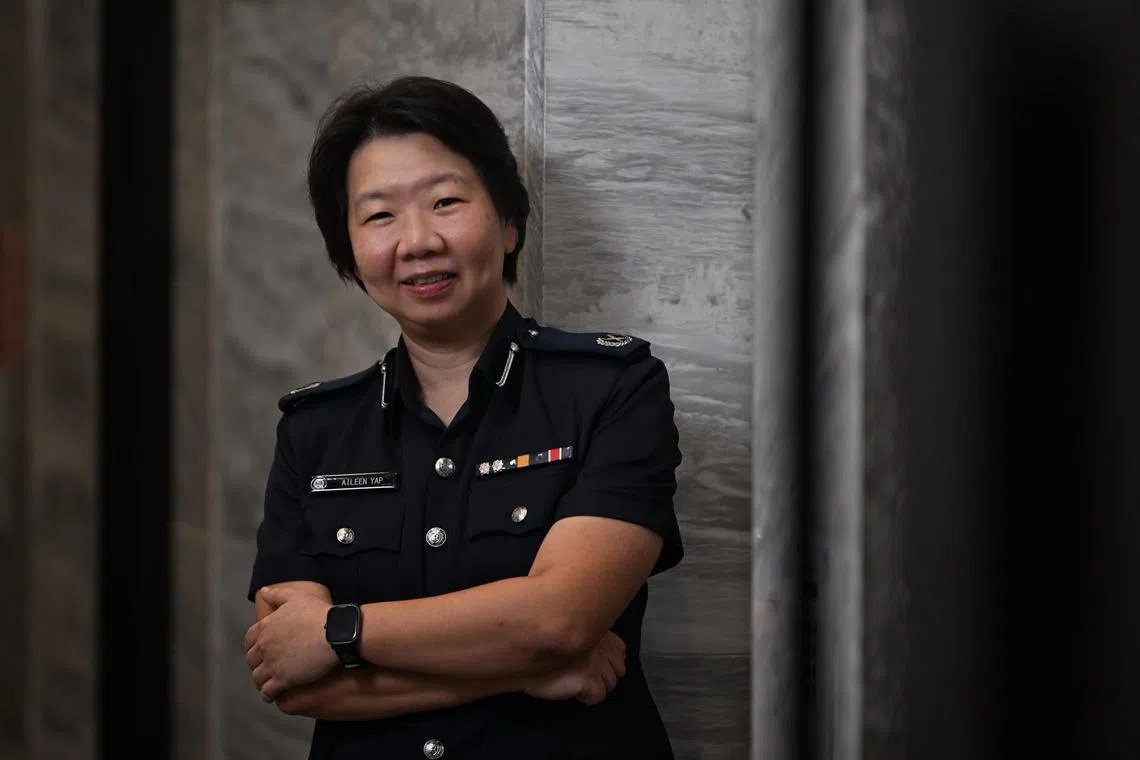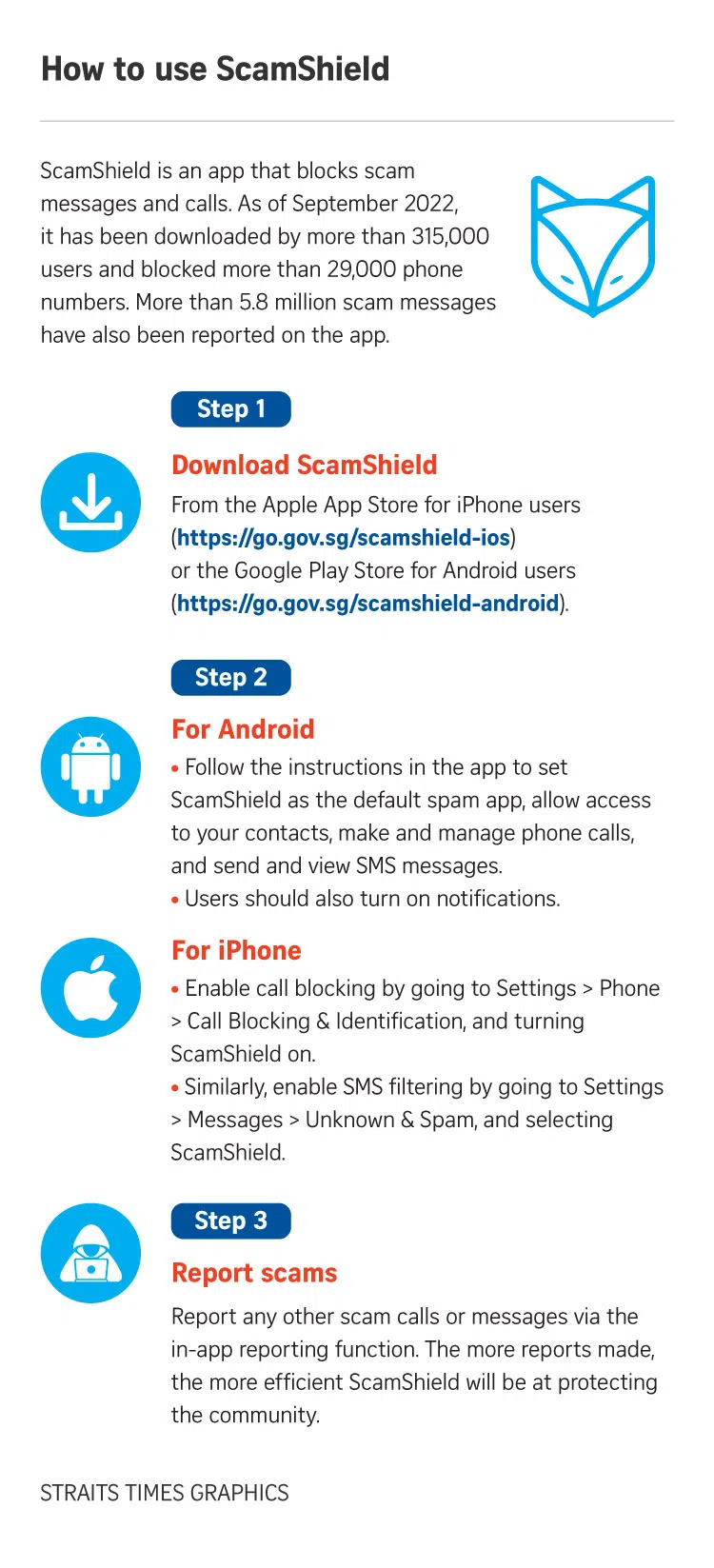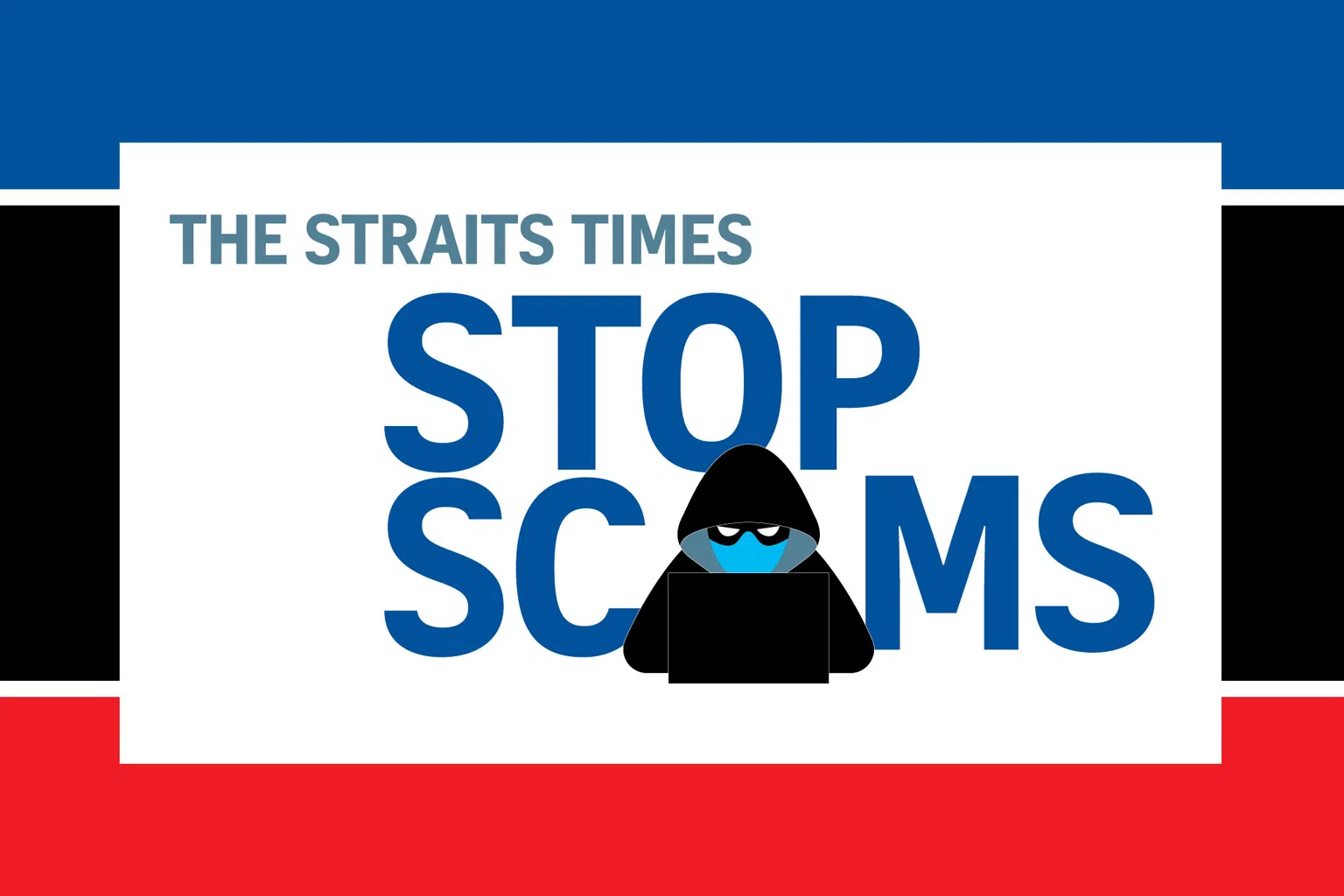Public can play important role in fighting scams: Police
Sign up now: Get ST's newsletters delivered to your inbox

Deputy Assistant Commissioner Aileen Yap says anti-scam officers have seen many heartbreaking stories.
ST PHOTO: CHONG JUN LIANG
SINGAPORE – A proactive community is needed for Singapore to fight scams effectively, because the authorities cannot do it alone.
All it takes is a few small steps, and these could mean the difference between keeping loved ones safe and them losing their life savings, said Deputy Assistant Commissioner Aileen Yap, assistant director of the Anti-Scam Command.
“Ultimately, the public’s vigilance is still our best line of defence,” she said.
She added that “there are many heartbreaking stories that we see as anti-scam officers”, but many people may not really feel for the victims “until it’s someone you know”.
More people have been coming forward to report scams even though they are not victims themselves, and this is an encouraging recent development, said Assistant Superintendent of Police Lu Rui Jue, an anti-scam investigation officer.
This is because more reports made means that there is more information that the authorities can work with, he said.
For example, ScamShield, an app that was launched in 2020 and is now available for both iPhone and Android,
The more reports that are received from members of the public, the more effective the app is in preventing scam messages from even reaching potential victims.
ASP Lu said: “It’s encouraging to see the community effort on the rise, and this shows that more people are taking scams seriously and want to protect others.
“We hope this continues and even more come forward to report and fight scams with us.”
Mr Kwek Boon Siang, principal psychologist at the crime, investigation and forensic psychology branch of the Home Team Behavioural Sciences Centre, said: “Anyone can fall for scams, even me.
“Humans have universal needs for love, attachment, survival, security and financial stability. And for each of these needs, there is a scam out there that preys on it.”
But there are steps one can take to protect oneself and loved ones, he added.
For example, Mr Kwek uses anti-virus software, two-factor authentication and ScamShield so that fewer scams can reach him.
“It’s also important to tell your friends and loved ones, because as you teach others about scams, you also remind yourself,” he said.
“And always check, take the time to pause and think whenever you receive a message or call.”
He also adjusted his privacy settings on social media so his profiles are private. But he noted that this might not be practical for everyone, especially if they require a public presence on such platforms.
More importantly, however, he said people need to think about their personal and banking information as something that needs to be guarded closely.
Mr Kwek said: “Treat your personal and banking information like your keys and wallet – you don’t just give them to other people.”
Anti-scam measures
The authorities began tracking scams in 2016, when they became a crime of concern with more than 5,300 cases reported that year. Here’s how the battle against scams has been waged so far.
October 2017
Police set up the Transnational Commercial Crime Task Force (TCTF) to investigate transnational scams like impersonation scams, Internet love scams and credit-for-sex scams. The TCTF worked with law enforcement agencies in Hong Kong, Macau and Malaysia to cripple international syndicates.
November 2018
Police set up the E-Commerce Fraud Enforcement and Coordination Team, which was a specialised unit focused on disrupting e-commerce scam operations. It clamped down on and arrested more than 100 scammers operating in Singapore.
June 2019
Anti-Scam Centre formed as a nerve centre for scam-related investigations.
April 2020
Inter-Ministry Committee on Scams (IMCS) formed
August 2020
Police and the National Crime Prevention Council launched the anti-scam public education campaign:
November 2020
ScamShield app launched for iPhone users
March 2021
Anti-Scam Division (ASD) established to consolidate all scam-fighting resources under the police’s Commercial Affairs Department. The ASD works with foreign law enforcement agencies on scam detection, disruption and loss mitigation.
March 2022
Anti-Scam Command (ASCom) operationalised,





